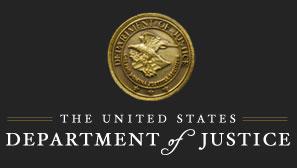
Justice Department Announces Over $10 Million to Improve Substance Abuse Treatment for Justice-Involved People
Deputy Attorney General Sally Q. Yates recently announced awards totaling more than $10.8 million to assist 162 state, tribal and local government agencies to improve evidence-based substance abuse treatment programs for incarcerated inmates, as well as to prepare justice-involved individuals for reintegration into local communities. The grants were announced during a visit by Deputy Attorney General Yates to a Bureau of Prisons Community Treatment Services Program as part of Prescription Opioid and Heroin Epidemic Awareness Week.
“Cooperation and community partnerships like the ones supported by the Residential Substance Abuse Treatment Program help incarcerated individuals transitioning back to the community receive the support they need to break the cycle of addiction and have the tools they need for successful reentry” said Deputy Attorney General Yates. “These grants are a critical part of the department’s ongoing work to combat the prescription opioid and heroin epidemic and provide treatment to those in need.”
The grants are funded under the Office of Justice Programs Bureau of Justice Assistance’s Residential Substance Abuse Treatment for State Prisoners Program. This annual award provides for the development and implementation of treatment programs and aftercare services in correctional and detention facilities in all 50 states, the District of Columbia and five U.S. territories.
“Treating justice-involved individuals for substance abuse must extend beyond incarceration treatment programs to be successful,” said Assistant Attorney General Karol V. Mason. “These grants reward those state, tribal and local agencies that seek to leverage community partnerships and interagency cooperation as well to help these individuals reenter society.”
The program’s framework allows award recipients to implement three types of programs: residential, jail-based and aftercare. Awardees are required to coordinate treatment programs with state correctional professionals and alcohol and drug abuse agencies to receive grant funding. They are also encouraged to partner with community-based organizations to help continue care as justice-involved individuals reenter local communities.
An additional $485,000 was awarded to Advocates for Human Potential, Inc., to provide training and technical assistance in the development and implementation of substance abuse treatment programs.
For a complete monetary and geographical breakdown of the grants awarded under this program, visit https://www.bja.gov/Funding/16RSATAllocations.pdf.
